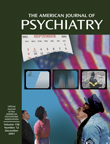It all began when a very talented writer inexplicably fell prey to the Noonday Demon, an excruciating state of depression, initiating an odyssey of which this book is the issue. The report is permeated with the victim’s relentless honesty, curiosity, and passion to understand his own fall and to share the fruits of his scholarly journey. It is a pretty remarkable journey, and both treaters and sufferers of depression alike stand to gain from it. Perhaps others as well.
In the service of his goal to master, demystify, and destigmatize depression, Solomon candidly reports the intimate details of his own horrendous illness and what he gleaned from his reflections and research. His tale begins with self-observations of suffocating despair, a suicide attempt, and the effects of copious psychotropics and psychoanalysis. Solomon interviewed more than 100 clinicians, researchers, fellow sufferers, mystics, politicians, and charlatans, and he read hundreds of books, reports, and letters. His bibliography contains nearly 900 items and includes the scientific literature that enabled him to write clearly of the biochemistry of depression and its pharmacopoeia.
The book sparkles with the author’s adventures as an intrepid investigator. He traveled to Cambodia to discern the aftereffects of the Khmer Rouge horrors and to Greenland to study depression among the Inuit Eskimos. He went to Senegal to partake of ndeup, an elaborate animist ritual cure that required five dancing native women, five drummers, and Solomon’s lying naked with a ram who was slaughtered, being covered with the animal’s blood, and participating in a celebratory feast of the animal’s flesh. He conversed with depressed people who were indigent and visited state mental hospitals. He took cocaine, smoked opium, swallowed Ecstasy, sky-dove, and did Outward Bound. He witnessed his mother’s self-induced euthanasia and reports on the antidepressant effects of committing an act of violence in a fit of rage.
Clinical anecdotes salt the pages of The Noonday Demon and vividly document the complex texture of depressive symptoms. These stories provide the hearth from which the author launches expositions into different aspects of his topic: biochemistry, therapies, epidemiology, history, sociology, politics, evolution, suicide, and related sallies ordered by the author’s insatiable curiosity. He makes a full case for the notion that depression is a symptom that gives rise to a complex of other symptoms. Nothing fits neatly into one basket, and, inevitably, where there is no cure there are many treatments. He warns of charlatans, but clinical variations validate the need for therapeutic options, and although he is open to all responsible alternatives, he champions the methods that served him: psychotropics, psychoanalysis, self-study, love, and determination. He is an especially strong advocate of early and long-term use of antidepressants, convinced by his studies that untreated depression promotes treatment-resistant chronicity. Solomon notes, amid concern with the subtleties of etiology, treatment, and prevention, that the incidence of depression among the poor is greater than twice the national average, and it goes mostly untreated.
As ever, perhaps the freshest discoveries derive from clinical material. Reading this book, I gained, among other things, greater clarity that suicide isn’t just about aggression. Pain and despair create other dynamics: “I didn’t plan my suicide because I hated myself; but because I loved myself enough to choose not to live this pain.” Another patient: “I cut myself to distract me from the crushing despair. It was my only pleasure.” Getting out can become an imperative. Solomon says: “It is up to each man to set the limits on his own tortures… [and] knowing that if I could get through this minute I could always kill myself in the next” made it possible, at one dangerous point in his illness, to survive.
Finally, a note on the value of depression. That depression can be a personal train wreck is known to us all, but the transformative effects in recovery are less well documented. Because depression is on an emotional spectrum with normal sadness and suffering, it contains the power to confer a brotherhood of sorts. This patient speaks for many: “Depression has given me kindness and forgiveness where other people don’t know enough to extend it.” It does appear that occasions of serious sadness or suffering often influence one toward empathic caring and personal growth. More concisely stated by the French psychoanalyst, Julia Kristeva: “The imprint of humankind…is refined in sorrow.” Solomon believes that his depression taught him the value of intimacy, tolerance, and his own compelling need to help others. I doubt that he is now the same man who once lost himself in a fit of violence. He summarizes: “I do not love my depression, but I love who I am in the wake of it.” That person is alive, intelligent, generative, and kind; however he got that way, he commands our admiration and appreciation for this valuable book.

